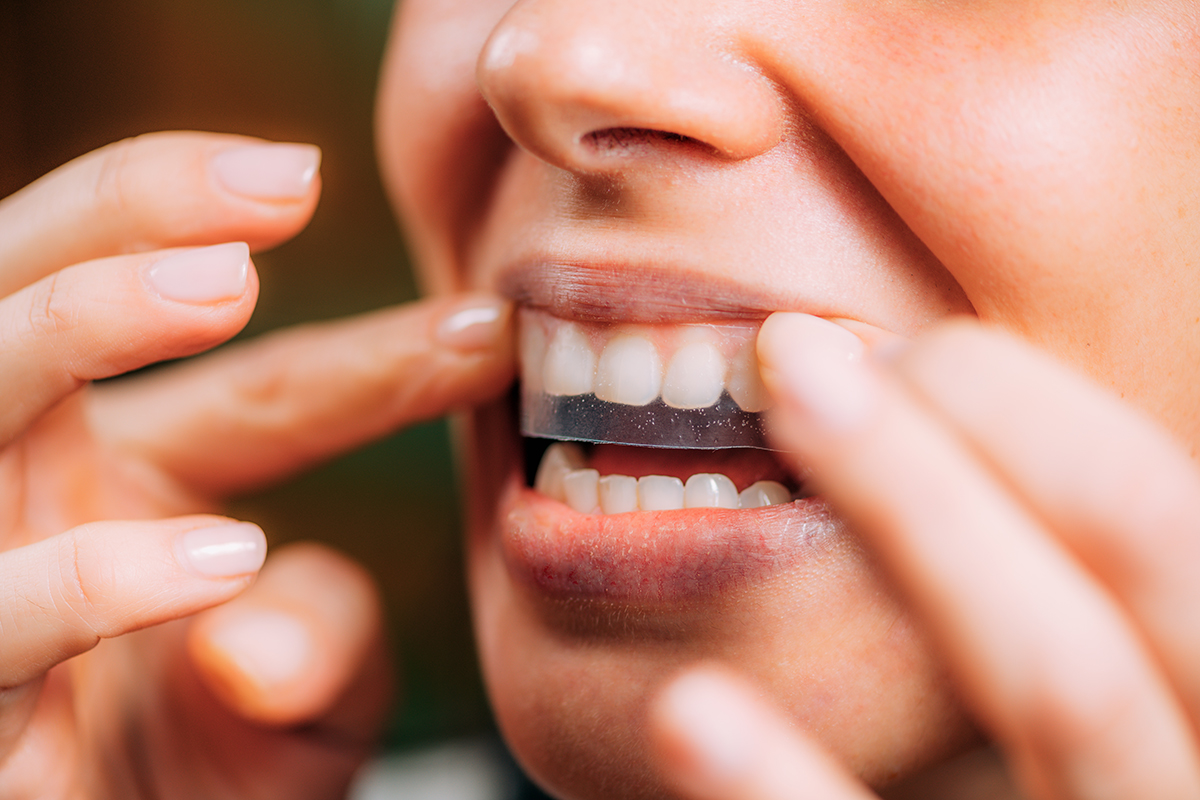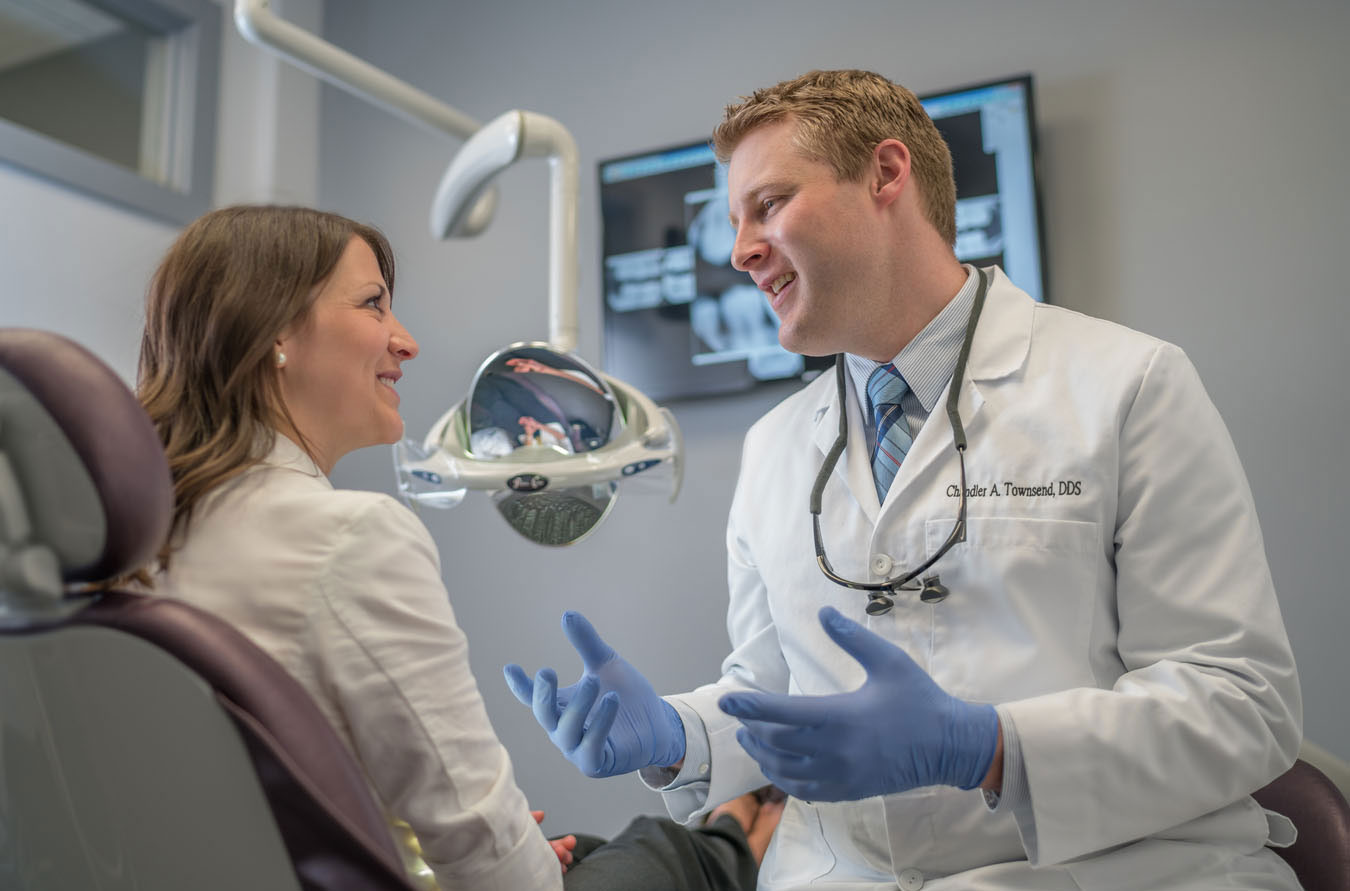
We’ve all been there. You’re scrolling through your social media feed and notice that every one of the influencers you follow seems to have dazzling, impossibly white teeth. So of course you start to feel self-conscious about your own smile, and begin frantically searching for easy teeth-whitening solutions, only to find your head spinning and full of questions about all the options and opinions out there.
We get it. It’s natural to want a brighter, whiter smile, and the convenience and affordability of over-the-counter (OTC) teeth whitening products are undoubtedly appealing. From whitening strips and gels to whitening toothpaste, these products promise to brighten your smile without the need for a dentist appointment. However, while OTC whitening products can be effective to some extent, there are several factors to consider when choosing one. So before you grab that teeth whitening kit, it’s essential to understand the risks and realities associated with these products.
Understanding the Risks
Potential Damage to Teeth and Gums
One of the biggest risks associated with OTC whitening products is the potential for damage to your teeth and gums. Some products contain abrasive ingredients that can wear down tooth enamel over time, leading to increased tooth sensitivity and a higher risk of cavities — so while you thought you were avoiding a trip to the dentist and saving a buck or two while you were at it, in the end it could actually be quite costly.
Uneven Whitening Results
Another thing to consider with OTC whitening products is the potential for uneven whitening results. Whitening strips, for example, may not adhere properly to your teeth, leading to patchy whitening. Additionally, if you’ve had dental work done such as crowns or veneers, these products may not whiten them, resulting in an uneven smile. And that’s not something you’ll find yourself smiling about later.
Increased Sensitivity
Many OTC whitening products can cause increased tooth sensitivity, especially if used incorrectly or for an extended period. This sensitivity can range from mild discomfort to severe pain, making it difficult to enjoy hot or cold foods and drinks, which is definitely less than ideal if you ask us.
Lack of Professional Guidance
When you use OTC whitening products, you’re essentially taking matters into your own hands. Without the guidance of a dental professional, you may not achieve the results you want, and you may not be aware of all the risks or how to deal with them, either. It’s always a good idea to have a co-pilot along for the ride with you.

The Importance of Professional Guidance
While OTC whitening products can be effective for some people, for the best results and to ensure your safety, it’s always a smart idea to consult with a dentist before starting any whitening treatment. Here’s why.
Customized Treatment Plans
A dentist can assess your oral health and recommend the best whitening treatment for you. They can also create a customized treatment plan to ensure that you achieve the results you’re looking for safely and effectively.
Professional-Grade Products
A dentist can assess your oral health and recommend the best whitening treatment for you. They can also create a customized treatment plan to ensure that you achieve the results you’re looking for safely and effectively.
Monitoring and Support
When you undergo teeth whitening treatment under the supervision of a dentist, they can monitor your progress and make adjustments as needed. If you experience any issues such as increased sensitivity, they can provide guidance on how to manage it. Think of it like a dental safety net.
Addressing Underlying Issues
Sometimes, discolored teeth can be a sign of underlying dental issues such as tooth decay or gum disease. A dentist can identify and address these issues before starting any whitening treatment, ensuring that your oral health is in good condition.

Debunking Common Myths
Myth: OTC Whitening Products are as Effective as Professional Treatments
Reality: While OTC whitening products can provide some improvement in tooth color, they are generally less effective than professional treatments. Professional treatments can achieve more significant and longer-lasting results.
Myth: OTC Whitening Products are Safe for Everyone
Reality: OTC whitening products may not be safe for everyone, especially those with underlying dental issues such as cavities, gum disease or sensitive teeth. It’s important to consult with a dentist before using any whitening products.
Myth: OTC Whitening Products are the Most Affordable Option
Reality: While OTC whitening products are typically less expensive upfront than professional treatments, they may end up costing more in the long run if you experience issues such as tooth sensitivity or uneven whitening results.
Summing It All Up
Want the TLDR version? Here you go.
While over-the-counter teeth whitening products can be a tempting solution for achieving a brighter smile because of their convenience and affordability, it’s essential to understand the risks and realities associated with these products. For the best results and to ensure your safety, consult with a dentist before starting any whitening treatment. Remember, a healthy smile is the best kind of smile!
